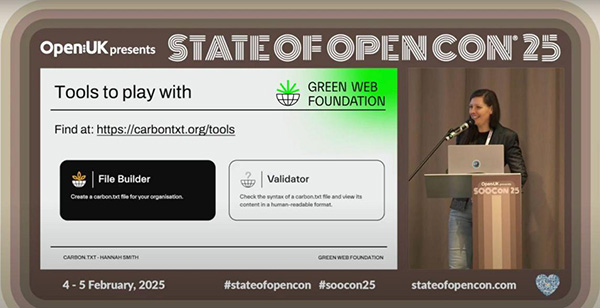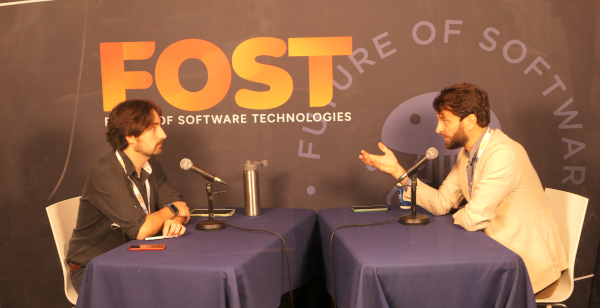Sustainability data that’s easy to discover and use.
carbon.txt is a single recognisable location on any web domain for public sustainability data relating to that company. The open source ecosystem of syntax, apis & plugins is free to use and build on.
Be part of the movement for open, discoverable, comparable, and traceable sustainability data on the web.
What data can you share and find?
Our free and easy to use tools are there to help you get started.
Key features
Surface data
Bring data reported in organisational sustainability reports and disclosures into the public domain in a format that is easily read by both humans and machines.
Extendable syntax
A simple, extendable syntax that can be used to describe a wide range of sustainability data, from carbon emissions to social impact, and be easily updated as new data types and mandated reporting requirements emerge.
Plugin architecture
A plugin architecture that allows for the easy integration of carbon.txt validation tools into existing platforms and software, enabling discovery and validation of sustainability data at scale across a range of use cases.
Get started
Carbon.txt makes sustainability data easier to discover and use on the web. Carbon.txt is a single, discoverable location on any web domain for public, machine-readable, sustainability data relating to that company.
It’s a web-first, connect not collect style approach, of most benefit to those interested in scraping the structured data companies have to publish according to national laws. Designed to be extended by default, we see carbon.txt becoming essential infrastructure for sustainability data services crunching available numbers and sharing the stories it can tell.



